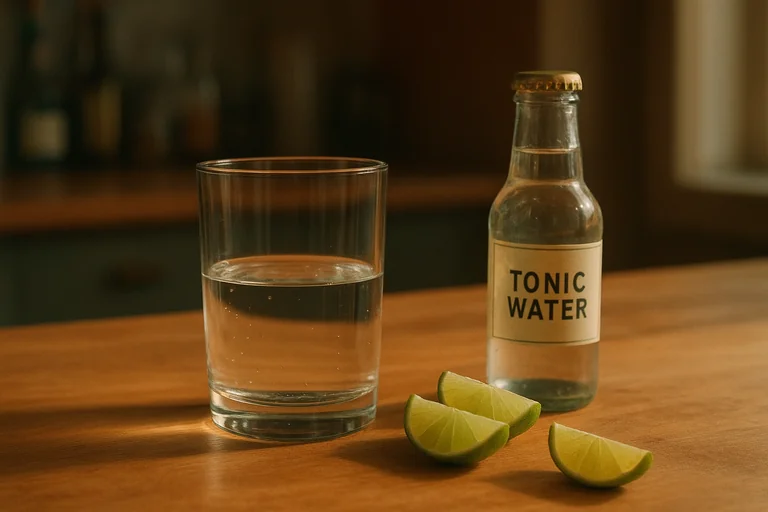A 2 minute assessment to get a personalized mental health or alcohol recovery plan.
It takes immense courage to seek advice on how to stop drinking. It's a sign of strength, a declaration that you're ready for a change. If you're here, you've already taken a monumental step. This guide is here to walk with you, offering practical, compassionate advice to help you reclaim your life from alcohol.
What You'll Discover:
- What to do when you're ready to stop drinking and need actionable advice
- Steps to take to create a practical plan that works for your situation
- The importance of combining self-help strategies with professional support
The idea of getting advice to stop drinking may seem simple to some people, but it's actually been proven to require a systematic approach for decades. When traditional "just stop" advice fails repeatedly, causing continued drinking and feelings of failure, many people assume they're not following the guidance correctly. With evidence-based sobriety strategies, professional medical support and other proven approaches now available, it's actually very straightforward to create an effective plan for stopping drinking that addresses both safety and long-term success.
So, how does effective advice to stop drinking work exactly? It's actually much more comprehensive than you think with multiple strategies working together.
Do Your Research About Proven Sobriety Strategies
Before you begin taking steps to stop drinking, it's important to learn about evidence-based approaches that have helped millions of people achieve lasting sobriety. In particular you want to look up information on:
- How to safely stop drinking without dangerous withdrawal complications
- What chronic alcohol consumption does to your brain and body
- Why professional medical guidance improves your chances of success
Recovery strategies are made for different situations and severity levels, and advice to stop drinking is the perfect example. It's not just for people with severe alcohol use disorder who need intensive treatment. It's also appropriate for people who want proven guidance for managing cravings, handling social situations, and building sustainable sobriety habits.
No matter what your drinking history, it's always best to know as much as you can about effective strategies before starting your sobriety journey.
Choose to Get Medical Evaluation
The next part takes professional assessment as well. You'll need to talk to a doctor before stopping drinking to ensure you can do so safely without dangerous withdrawal symptoms. This is an extremely important safety step that goes well beyond just deciding to quit.
You'll want to make sure that you understand withdrawal risks and get appropriate medical guidance to ensure safe alcohol cessation. Experience with alcohol withdrawal is also extremely important. Healthcare providers who have been helping people stop drinking for years and specialize in addiction medicine are going to be well-equipped to help with safe detox protocols.
Take an Assessment of Your Individual Situation
The medical provider you choose should evaluate your drinking patterns, health status, and withdrawal risk to determine what approach will be safest and most effective. This is a crucial part of the process for understanding whether you can stop on your own or need medical supervision.
This assessment is a simple yet crucial part of the process for determining what combination of strategies will work best for your specific circumstances. It also provides medical professionals with baseline information that will be important in subsequent steps of your recovery plan.
Choose Your Sobriety Strategy
If stopping drinking is appropriate after your assessment you can develop a personalized plan combining proven strategies with any needed medical support. With evidence-based approaches there are several effective methods that all include different combinations of self-help techniques and professional guidance.
Have Your Strategy Planning Session
The most essential step in getting effective advice to stop drinking is working with professionals who can help you create a comprehensive plan. They will:
- Assess your safety needs and withdrawal risk
- Provide specific strategies for managing cravings and triggers
- Help you build a support system for long-term success
This will help ensure your plan addresses both the immediate challenges of stopping and the ongoing work of maintaining sobriety long-term.
Begin Following Your Comprehensive Plan
After your planning session, you'll start implementing the specific strategies designed for your situation. This includes any needed medical monitoring, proven coping techniques, and practical steps for managing daily life without alcohol.
The approach focuses on both stopping safely and building skills for lasting sobriety success. It's extremely important to follow your plan consistently, especially when it comes to safety protocols and new habit formation.
Take Each Strategy Seriously
Once you begin implementing your sobriety plan you can start building the new patterns and responses that will support alcohol-free living. There will be specific techniques for managing cravings, changing your environment, and developing new activities to replace drinking.
It's extremely important to practice these strategies exactly as recommended, particularly when it comes to recognizing triggers and implementing your coping responses.
Follow-Up to Maintain Your Success
Having ongoing support as you implement your sobriety strategies is highly beneficial in ensuring you maintain progress and address challenges as they arise. It gives you the opportunity to refine your approach and celebrate milestones in your recovery.
This ongoing guidance can also help you develop advanced strategies for long-term sobriety maintenance and continued personal growth.
Why Simple Willpower Advice Doesn't Work
Don't let outdated ideas about stopping drinking being just a matter of willpower fool you into thinking that determination alone is sufficient. The criteria for what makes alcohol cessation challenging is well-established based on neuroscience research into addiction.
Many addiction specialists, researchers and medical professionals will tell you that alcohol creates physical dependence and brain changes that make stopping extremely difficult without proper strategies. Even people with strong motivation struggle with willpower-only approaches, and it's particularly challenging because chronic alcohol consumption alters brain chemistry in ways that require specific interventions to address effectively.
Now that you have a better idea of why comprehensive advice is necessary, let's delve further into the specific proven strategies that can help you successfully stop drinking.
The Undeniable Truth About Effective Stopping Advice
The undeniable truth is that successful advice to stop drinking must be comprehensive, evidence-based, and tailored to individual circumstances. According to Harvard Health, writing down your reasons for quitting creates powerful motivation that helps sustain commitment during difficult moments.
Make a Clear Personal Commitment
The foundation of stopping drinking successfully is making a definitive decision and commitment to yourself. This isn't a vague wish - it's a clear, personal commitment to change your relationship with alcohol.
According to research, writing down your specific reasons for stopping creates a tangible reminder you can reference when motivation wavers. Whether it's improving health, saving relationships, advancing your career, or feeling better physically and mentally, having clear written reasons provides powerful motivation.
This written commitment becomes your anchor when cravings arise or social pressures occur.
Get Essential Medical Guidance
According to the Hazelden Betty Ford Foundation, talking to a doctor before stopping drinking is essential for both safety and success.
Medical professionals assess your withdrawal risk and determine whether you can stop safely without supervision. For people with physical dependence, unsupervised withdrawal can be dangerous or life-threatening.
A doctor can prescribe medications to ease withdrawal symptoms, monitor your health during early sobriety, and connect you with appropriate ongoing support.
Set Achievable Short-Term Goals
Rather than overwhelming yourself with "never drinking again," focus on specific, manageable goals that build confidence and momentum.
The Hazelden Betty Ford Foundation recommends starting with concrete actions like attending one support meeting, avoiding one drinking situation, or scheduling one therapy appointment.
Each success builds confidence and creates positive momentum that makes larger goals feel achievable.
Create an Alcohol-Free Environment
Remove all alcohol from your home and ask family members or roommates to support an alcohol-free environment. Physical removal reduces impulsive drinking opportunities during vulnerable moments.
Avoid places and people strongly associated with drinking, especially during early sobriety when triggers are most intense.
Environmental changes make sobriety easier by reducing exposure to drinking cues.
Build Your Support Network
Recovery requires multiple sources of support addressing different needs:
- Family and friends who understand your goals and provide encouragement
- Professional therapists who can teach evidence-based coping strategies
- Peer support groups where you connect with others who understand recovery challenges
This multi-layered support provides backup when one source isn't available and addresses different aspects of the recovery process.
Plan for Craving Management
Cravings are normal during recovery, but having specific strategies ready prevents impulsive drinking decisions.
The Hazelden Betty Ford Foundation recommends preparing answers to:
- Who will you call when cravings hit?
- What activities can distract or comfort you?
- What changes can reduce future cravings?
Having concrete plans empowers you to handle cravings confidently rather than feeling helpless.
Replace Drinking with Meaningful Activities
Sobriety creates additional time and energy previously consumed by drinking and recovery. Fill this time with enjoyable activities that provide positive reinforcement for your alcohol-free lifestyle.
Whether it's exercise, hobbies, volunteering, learning new skills, or quality time with family, engaging activities make sobriety rewarding rather than feeling like deprivation.
NEED TO KNOW: These strategies work best when combined together rather than used individually. The most successful people use multiple approaches simultaneously to address different aspects of stopping drinking.
What's Most Concerning About Going It Alone
What's most concerning about trying to stop drinking without comprehensive support is that alcohol dependence involves both physical and psychological components that each require different strategies to address effectively.
The physical dependence creates withdrawal symptoms that can be dangerous without medical supervision, while the psychological aspects require new coping skills and environmental changes to manage successfully.
Additionally, many people underestimate the importance of having backup plans and multiple support sources for when initial strategies don't work or life circumstances change.
When Professional Treatment Enhances Success
While these practical strategies provide a strong foundation, professional treatment significantly improves success rates. Medications like naltrexone can reduce cravings and make behavioral strategies more effective.
Combined with therapy and medical monitoring, evidence-based treatments address the neurological aspects of addiction while helping you implement practical strategies successfully.
The most effective approach combines proven self-help advice with professional support, creating a comprehensive plan that maximizes your chances of stopping drinking successfully and maintaining long-term sobriety.
If you're ready to stop drinking and want to combine practical strategies with professional support, take our Alcohol Use Assessment to explore how evidence-based treatment can support the practical advice you implement.




